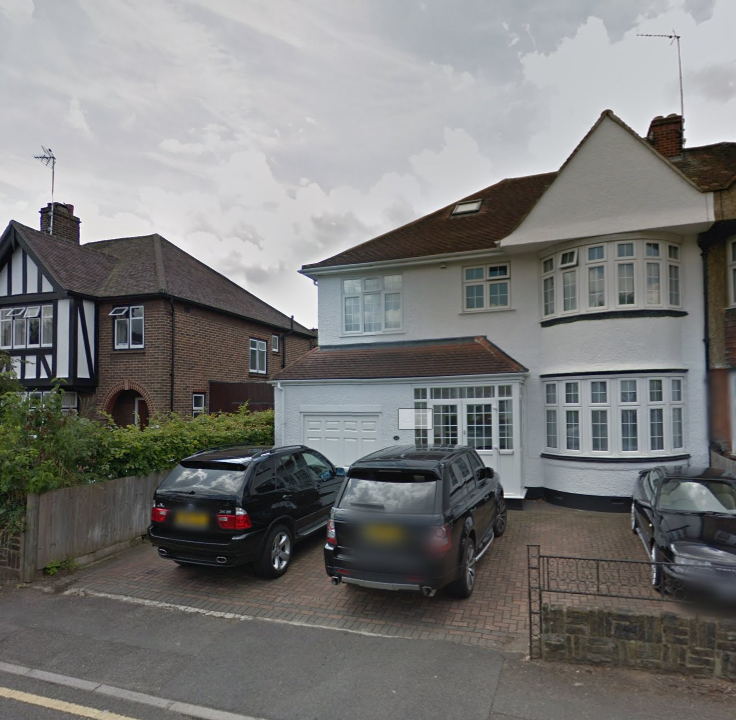I have recently been advising a gentleman who approached us with a knotty planning problem. With their kind permission I requested that we be able to publish the story as it is an important cautionary tale and an example of the tightening noose around SA providers in England.
Extracts of the email’s are set out below with the kind permission of the developer in question.
First Email from Property Owner went like this:
I refurbished a property that I converted to a 6 bedroom HMO in 2019.
I operated it as serviced accommodation letting out 6 individual rooms and had up-to 9 paying guests staying a night.
I was genuinely surprised how successful it was and all the demand. The property was sometimes generating more than double the income a fully let HMO would make.
We hired a cleaner who washed and changed the bedding, cleaned the rooms the house in between guests.
The council came knocking and told me I had to stop as it was change of use and required planning. They have since given me an Enforcement notice so I’m not able to operate anymore and have had to revert back to HMO use with tenants living in the house on AST’s.
Pre-application advice from the Council is that it would be refused
I have the option of selling it as a HMO but really want to keep the house if I can operate as serviced accommodation.
My communication with the council has been awful, they have been negative at every stage. They have treated me like a rogue landlord basically and feel bullied with no rights.
My Response in full:
Having read your email in detail please find my considered response.
Further to the decision of Moore v. SSCLG [2012] EWCA Civ 1202 and other relevant cases in Cambridge and London Council’s have taken an increasing interest in Serviced Accommodation and its effect on Housing Supply. Regrettably property education courses on the subject omit the critical town planning components leaving investors like yourself vulnerable to enforcement action. Being unaware of planning law and practice is not a defence in these cases. When enforcing a breach of planning control the Council latterly has no duty towards you at all. They are permitted to treat you as if you have carried out a criminal offence as, if you had decided not to comply, it would have become a criminal matter dealt with by the Courts.
I, of course, appreciate fully the situation you find yourself in and the stress the enforcement process has put you under. I must however say that given your situation your options are expressly limited given that the Council has taken direct enforcement action. By taking this action they have already made a judgement that they would not grant planning permission were you to seek it. If in fact a planning permission were possible you would have been invited to make one.
In order to assist you I would need the address of the property, the planning authority that served notice and a copy of the enforcement notice they issued to you. I would also need to review their planning policies in order to advise whether you have a way out. It would not be appropriate for me to suggest a service at this stage without properly understanding whether such a service would indeed be successful. As Chartered Town Planners we should only suggest a course of action which is in the clients best interests. If selling the property would be in your best interest then that will ultimately be my advice to you.
The Plot Thickens
Firstly the council did offer me the option of applying for retrospective planning permission but I just didn’t have the money to pay their fees.
I had a meeting with them and it sounded like they were open to having mixed use at the time but the pre-app confirmed that this was not the case.
There are sections of the enforcement notice that are untrue.
My property is the only property on the street with a driveway with off street parking.
There is actually more noise than when it was operating for short term lets.
I could install CCTV to mitigate any unauthorised activity which could potentially occur.
On the pre-app they said “If an application was submitted for the proposed use it would likely be refused as it would be contrary to Local Plan Policy H9. The house has C4 use currently and is classed as a “Small HMO” upto 6 people, Sui Generis are large HMO’s so how can this be classed as a larger dwelling?
The property wouldn’t be attractive to an owner occupier, is on a corner not middle of the street and opposite unused land. I can’t see why they don’t see the positives of change of use. Even if it would mean a maximum of 6 people at 1 time I would be open to that but no dialog at all.
My final answer on the subject
Having looked through the papers sent I can see why you are troubled. There are factual inaccuracies between the actual former use of the property and the use asserted within the Enforcement Notice as well as unsupported assertions within the notice itself.
Like the other advice you have received I would be duly concerned if you were to attempt an application. The letter ‘inviting’ an application is not an invitation at all but simply giving notice of your statutory right.
Furthermore the Enforcement Notice is now active and cannot be quashed or appealed against and as such this would ultimately guide the LPA into a refusal and a protracted and costly appeal.
In order to tidy up the case file it may be in your interest to seek confirmation from the Council that the use as an HMO is lawful as the Enforcement Notice incorrectly requires the use to revert to a dwellinghouse.
As unfair as this may sound I think you must seek to dispose of this property as failing to challenge the notice at the appropriate time has ultimately reduced your options to either the continued use of the property as an HMO or returning it to a family home. With this Enforcement Notice on the file I do not see how the council could actually approve serviced accommodation on this site and therefore I must consider that it is in your best interests to either continue to use the property as a 6 person HMO with all residents on AST’s or dispose of the property.
Comments on this case:
It is often sad when we as Town Planners have to get involved in the very business end of planning. Recovering sites from Enforcement Proceedings has a very low success rate and by that point you are always fighting a retreating position.
It is also upsetting when the property investor’s failing here was a lack of understanding. The assumption that SA did not actually need planning permission at all was the catalyst for the enforcement officer eventually catching up with them. This is sadly not the fault of the property investor but in fact it is a much wider problem within the property education sector which still, today, misses off the critical town planning component when extolling the virtues of Serviced Accommodation.
Finally I wanted to draw some conclusions on my advice to them going forward. Fighting an enforcement notice through a planning application always ends up at appeal. either the matter is refused by officers as they have already served notice and find it unacceptable or it is called in by councillors and dealt with at committee.
Such a process is costly to the applicant and time consuming with an uncertain future. It would have been wholly wrong for me to promise any positive outcome given where the development found itself as the chances of success were slim. As such the best course of action for the developer was to either retain the property as an HMO within Class C4 or sell the property is an as is state.


